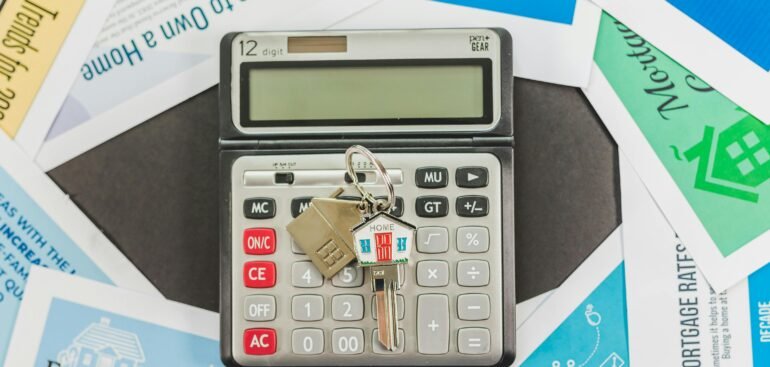Introduction: Strengthening Financial Integrity in Mortgage Audits
The financial sector, especially the mortgage industry, plays a pivotal role in economic stability. However, with its complexity comes the risk of errors, fraud, and non-compliance. The need for transparency and accuracy in mortgage transactions has never been more critical. This is where forensic accounting audits, combined with the expertise of Fraud Stoppers, step in to ensure rigorous scrutiny, fraud detection, and compliance adherence.
A Forensic Accounting Audit is an investigative process that examines mortgage-related financial records to detect anomalies, errors, or fraudulent activities. It is a robust solution for uncovering irregularities and ensuring compliance, providing both borrowers and lenders with the confidence they need in high-stakes financial decisions. Fraud Stoppers enhances this process by leveraging advanced technology and expertise to identify discrepancies, protect stakeholders, and prevent potential financial losses.
In this comprehensive guide, we explore the transformative role of forensic accounting audits in mortgage audits, highlighting their components, benefits, real-world applications, and expert insights. Whether you’re a homeowner, investor, or lender, understanding the power of these audits can help secure your financial future.
What is a Forensic Accounting Audit?
A forensic accounting audit delves into the intricate details of financial transactions, contracts, and agreements to uncover irregularities or fraudulent activities. Unlike standard audits, forensic audits are investigative and often tailored to detect fraud, evaluate compliance, and provide evidence in disputes or litigation.
In mortgage audits, a forensic accounting audit ensures that every transaction and document adheres to legal standards while protecting stakeholders from risks associated with errors or fraud.
Key Objectives of a Forensic Accounting Audit in Mortgage Transactions
- Fraud Detection:Identifying fraudulent practices, including falsified income statements or predatory lending.
- Error Rectification:Addressing inaccuracies in mortgage documents or payment histories.
- Compliance Assurance:Ensuring adherence to federal and state regulations.
- Litigation Support:Providing indisputable evidence in case of legal disputes.
Why Combine Forensic Accounting Audits with Fraud Stoppers?
Fraud Stoppers complements forensic accounting audits by offering advanced tools and methodologies for fraud detection. Together, they form a powerful alliance in safeguarding mortgage transactions.
Advantages of This Combination
- Comprehensive Fraud Detection
Fraud Stoppers employs sophisticated technology to identify subtle signs of fraud that might escape traditional audits. - Enhanced Accuracy
The combined expertise of forensic accountants and Fraud Stoppers ensures unparalleled precision in identifying errors or discrepancies. - Efficient Resolution
This partnership not only identifies issues but also provides actionable insights to resolve them promptly.
Components of a Forensic Accounting Audit in Mortgage Audits
1. Document Review
Every mortgage-related document is scrutinized for irregularities. This includes loan applications, payment records, closing statements, and contracts.
2. Financial Analysis
Detailed analysis of financial transactions identifies discrepancies such as inflated appraisals, hidden fees, or unauthorized charges.
3. Compliance Verification
Auditors ensure that all processes comply with federal and state laws, reducing legal risks for stakeholders.
4. Fraud Detection and Prevention
Advanced forensic tools, coupled with Fraud Stoppers’ expertise, are used to uncover fraudulent activities, such as income misrepresentation or identity theft.
5. Reporting and Recommendations
A comprehensive report highlights findings, risks, and recommended actions to address identified issues.
Benefits of Forensic Accounting Audits in Mortgage Transactions
Enhanced Fraud Detection
Forensic accounting audits, bolstered by Fraud Stoppers, provide unmatched precision in detecting fraudulent activities. From document forgery to predatory lending practices, every anomaly is flagged and addressed.
Legal Compliance
Non-compliance can lead to severe legal and financial consequences. Forensic audits ensure that all transactions align with applicable regulations, safeguarding stakeholders from potential lawsuits.
Financial Accuracy
Errors in mortgage documentation can result in significant financial losses. A forensic audit ensures every detail is accurate, protecting both borrowers and lenders.
Strengthened Trust
By addressing discrepancies and ensuring transparency, forensic audits foster trust between stakeholders in mortgage transactions.
Expert Insights on Forensic Accounting Audits
Financial Analyst’s Perspective
“In an industry as complex as mortgages, the value of forensic accounting audits cannot be overstated. By combining investigative rigor with Fraud Stoppers’ cutting-edge tools, stakeholders can navigate financial challenges with confidence.”
– John Daniels, CPA, Financial Analyst
Testimonial from a Homeowner
“Thanks to the forensic accounting audit conducted by Mortgage Audits Online, I uncovered critical errors in my mortgage documents. Fraud Stoppers’ expertise was instrumental in resolving these issues, saving me thousands of dollars.”
– Sarah Mitchell, Homeowner
Steps to Conduct a Forensic Accounting Audit
- Engage Experts
Partner with professionals experienced in forensic accounting and fraud detection. - Collect Documentation
Gather all mortgage-related documents, including loan agreements and payment records. - Analyze Data
Employ advanced forensic tools to identify discrepancies and irregularities. - Generate a Report
Prepare a detailed report outlining findings and recommended actions. - Implement Recommendations
Address identified issues to rectify errors and mitigate risks.
Common Fraud Scenarios in Mortgage Audits
Inflated Property Valuations
Overstated appraisals are a common tactic used to inflate loan amounts.
Falsified Income Statements
Misrepresentation of income or employment details to secure loans is a frequent issue uncovered during forensic audits.
Predatory Lending Practices
Excessive fees, misleading terms, and other unethical practices are identified through rigorous audits.
Why Choose Mortgage Audits Online for Your Forensic Accounting Audit?
Mortgage Audits Online specializes in delivering comprehensive forensic accounting audits tailored to the needs of the mortgage industry. By integrating advanced analytics with Fraud Stoppers’ expertise, we ensure thorough investigations that protect stakeholders from financial risks.
Customer Testimonials
“The team at Mortgage Audits Online uncovered significant errors in my mortgage documents, preventing a potential financial disaster. Their expertise is unmatched.”
– David Rogers, Satisfied Client
“Fraud Stoppers’ tools, combined with the meticulous approach of Mortgage Audits Online, ensured a flawless audit of my mortgage. I couldn’t be more grateful.”
– Lisa Green, Homeowner
Call to Action: Protect Your Financial Future Today!
Don’t let errors or fraud jeopardize your mortgage transactions. A forensic accounting audit can safeguard your financial interests and ensure compliance with industry regulations.
📞 Contact us at (877)-399-2995
🌐 Visit Mortgage Audits Online
Let Mortgage Audits Online and Fraud Stoppers be your trusted partners in achieving financial transparency and security. Take action today!







